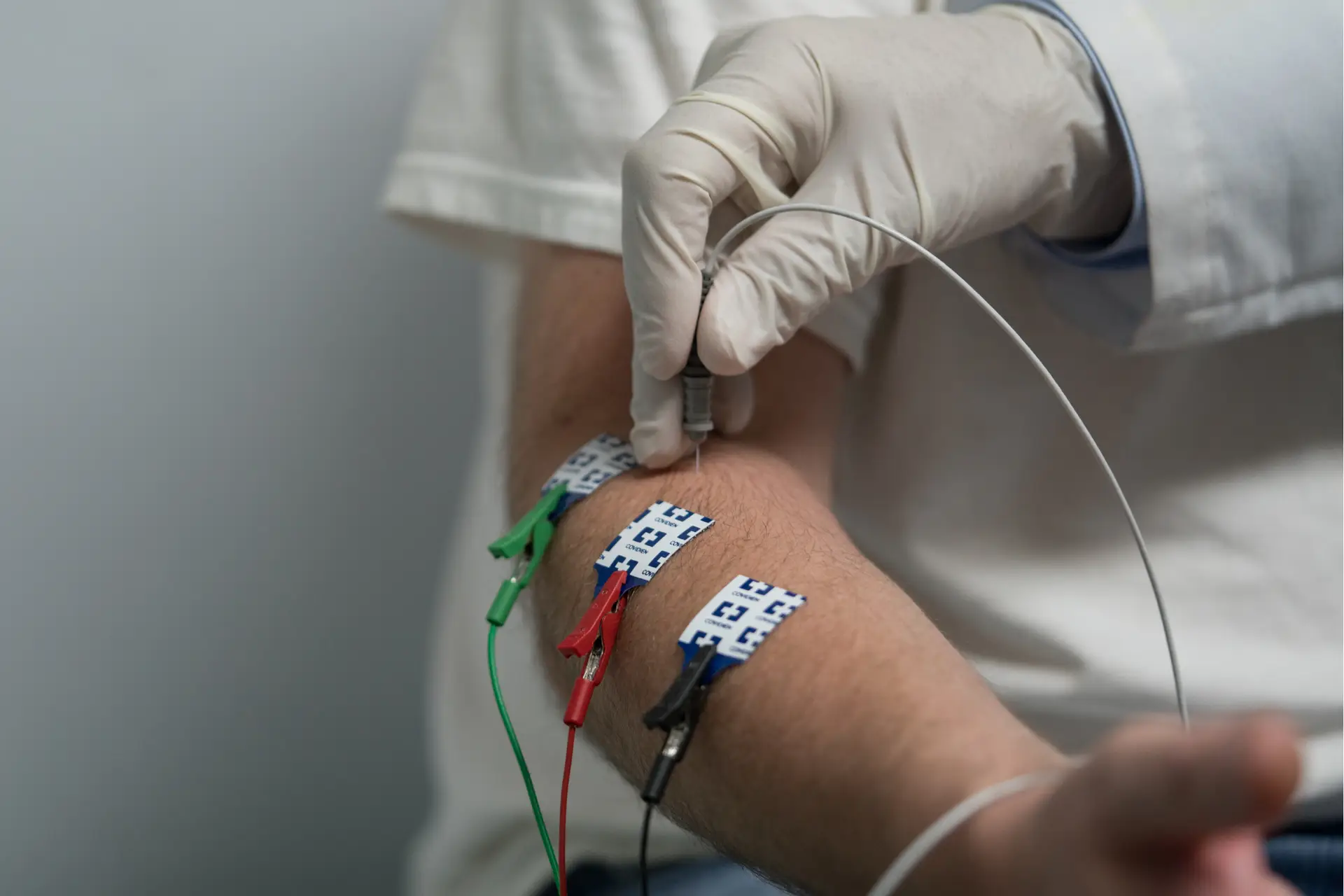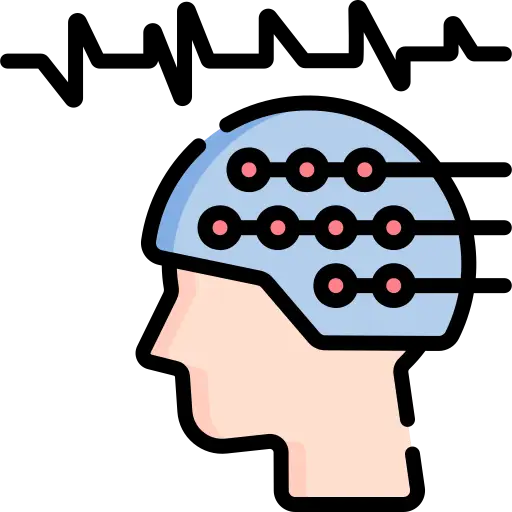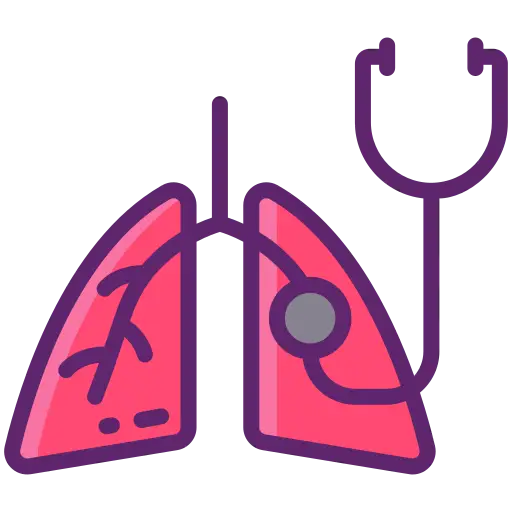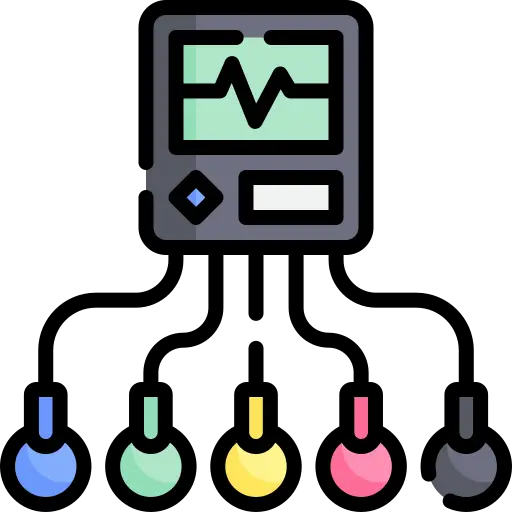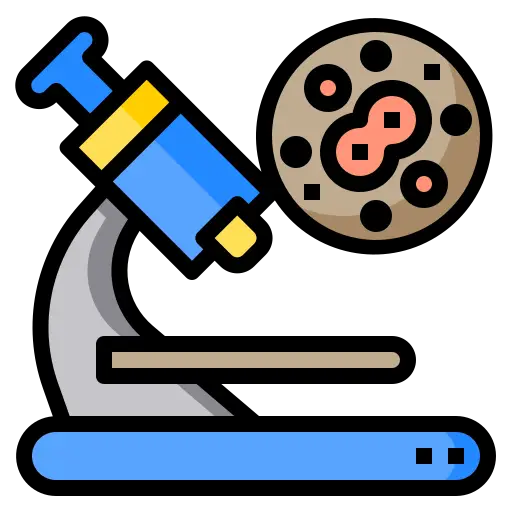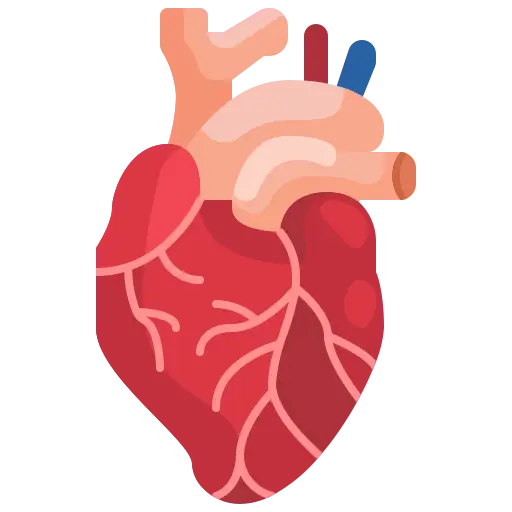EMG/NCV
What is an EMG (Electromyography)?
At Gentle Imaging and Diagnostics, we offer advanced EMG (Electromyography) and NCV (Nerve Conduction Velocity) tests to help diagnose and assess various neurological and musculoskeletal conditions. These non-invasive tests are crucial for evaluating nerve and muscle function, helping to identify issues such as nerve damage, muscle disorders, and more. If you’re looking for EMG and NCV near me, NCV in East Delhi, or EMG in Anand Vihar, our state-of-the-art equipment and experienced professionals are here to provide accurate and timely results.
EMG (Electromyography) is a diagnostic procedure that measures the electrical activity of muscles. It helps detect abnormalities in muscle function and nerve-to-muscle communication. During the test, small electrodes are inserted into the muscles to record electrical activity. The test can reveal muscle disorders, nerve damage, or other neuromuscular issues.
An EMG is used to assess conditions such as:
- Muscle weakness
- Nerve compression or entrapment (e.g., carpal tunnel syndrome)
- Radiculopathies (nerve root problems)
- Neuropathies (nerve diseases)
Myopathies (muscle diseases)
What is an NCV (Nerve Conduction Velocity)?
NCV (Nerve Conduction Velocity) is a test that measures how quickly electrical signals travel through a nerve. This test helps assess nerve damage and function, particularly in patients with conditions such as diabetes, peripheral neuropathy, and carpal tunnel syndrome. During the NCV test, electrodes are placed on the skin to deliver a small electrical pulse to the nerve and measure the speed of the signal as it travels along the nerve.
An NCV test can help diagnose:
- Peripheral neuropathy
- Carpal tunnel syndrome
- Guillain-Barré syndrome
- Nerve injuries or compression
- Chronic inflammatory demyelinating polyneuropathy (CIDP)


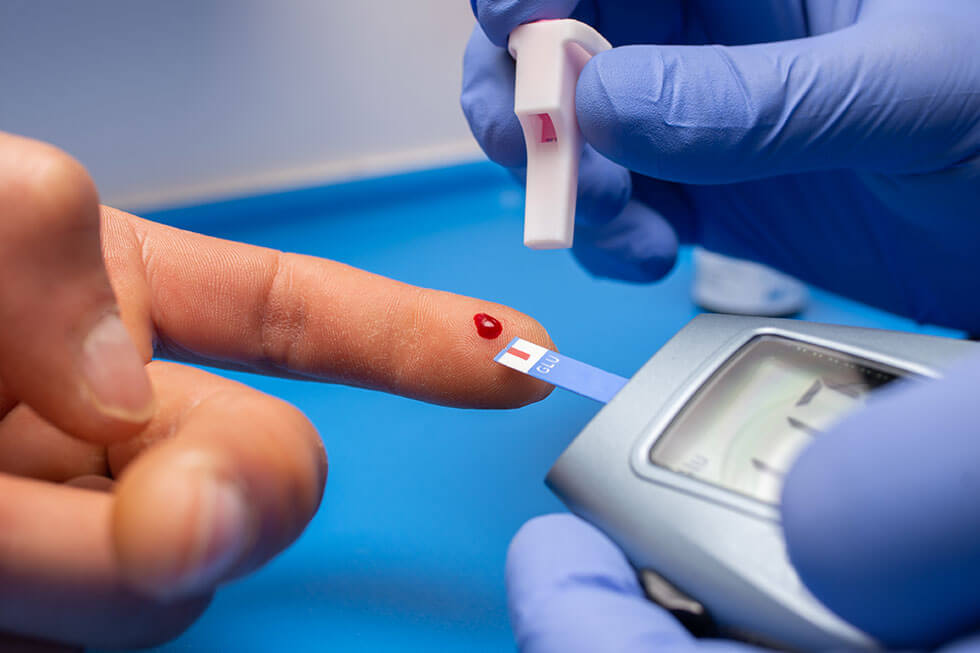
When is an EMG or NCV Test Recommended?
Your doctor may recommend an EMG or NCV test if you’re experiencing symptoms such as:
- Numbness or tingling in your arms, legs, or other parts of your body
- Muscle weakness or wasting
- Pain or discomfort due to nerve compression or injury
- Difficulty with coordination or movement
- Loss of reflexes or muscle twitching
- Suspected nerve conditions such as carpal tunnel syndrome or peripheral neuropathy
These tests can help diagnose a variety of neurological or musculoskeletal conditions, providing your doctor with the necessary information to make an accurate diagnosis and determine an appropriate treatment plan.
What to Expect During an EMG and NCV Test?
Both EMG and NCV tests are relatively quick and non-invasive, though you may feel slight discomfort during the procedure.
EMG Test Procedure:
- Preparation: You may be asked to change into a gown. The technician will clean the skin where the electrodes will be placed.
- Electrode Insertion: Fine needles are inserted into the muscles to measure electrical activity.
- Muscle Contraction: You will be asked to contract the muscle gently to allow for proper measurement.
- Duration: The test typically lasts between 30 minutes to an hour.
NCV Test Procedure:
- Preparation: Similar to the EMG, the skin is cleaned, and electrodes are placed on the skin.
- Electrical Stimulation: A small electrical pulse is applied to stimulate the nerve, and the speed of the signal is recorded.
- Monitoring: Your response to the stimulation will be monitored as the technician collects data.
- Duration: The NCV test typically takes around 30 minutes to complete.
Benefits of EMG and NCV Testing
- Accurate Diagnosis: These tests provide detailed information about nerve and muscle function, helping to diagnose conditions that may not be apparent through imaging tests like X-rays or MRIs.
- Early Detection: EMG and NCV tests help detect nerve damage or dysfunction early, allowing for timely treatment and better outcomes.
- Personalized Treatment Plans: The results of these tests enable your doctor to create an effective, targeted treatment plan based on the exact cause of your symptoms.
- Monitoring Progress: If you’re undergoing treatment for a neuromuscular condition, these tests can help monitor how well you’re responding to therapy.
Schedule Your EMG and NCV Test Today
At Gentle Imaging and Diagnostics, we are committed to providing high-quality diagnostic services in a comfortable and supportive environment. If you’re in need of EMG in Anand Vihar, NCV in East Delhi, or any other neuromuscular test, our team is here to assist you.
Contact Us to Book an Appointment:
- Phone: ( 08448261601)
- Email: ( info@gentleimaging.com )
- Location: ( https://g.co/kgs/QWRPkBd )
Get the answers you need about your nerve and muscle health today at Gentle Imaging and Diagnostics!
Service Testimonial
Service FAQ
What is an EMG (Electromyography) test?
An EMG test measures the electrical activity of muscles at rest and during contraction. It helps diagnose conditions that affect muscle and nerve function, such as muscle weakness, spasms, or nerve damage.
What is an NCV (Nerve Conduction Velocity) test?
An NCV test measures how fast electrical signals travel along a nerve. It is used to assess nerve function and detect conditions like nerve compression, neuropathy, or other disorders affecting the nerves.
How does an EMG test work?
During an EMG, small, thin needles (electrodes) are inserted into the muscle to record electrical activity. The test detects how well your muscles are functioning and whether there are any abnormal electrical signals, indicating a problem.
How does an NCV test work?
During an NCV test, electrodes are placed on the skin over the nerve to be tested. A mild electrical pulse is applied to stimulate the nerve, and the speed of the nerve signal is measured. This helps assess nerve function and identify abnormalities in nerve conduction.
What conditions can an EMG/NCV test diagnose?
These tests can help diagnose various conditions, including carpal tunnel syndrome, sciatica, peripheral neuropathy, radiculopathy, muscle disorders, ALS (amyotrophic lateral sclerosis), and other nerve or muscle dysfunctions.
Is the EMG/NCV test painful?
While the EMG involves the insertion of small needles into the muscle, it is typically not very painful, though you may experience some discomfort or mild muscle soreness during and after the test. The NCV test is generally painless and involves a mild electrical sensation.
How should I prepare for an EMG/NCV test?
You should avoid applying lotion or oils to your skin on the day of the test. Wear loose, comfortable clothing to allow access to the area being tested. Inform your doctor if you are on medications like blood thinners or have a pacemaker.
How long does an EMG/NCV test take?
The entire EMG/NCV test usually takes between 30 to 60 minutes, depending on the number of muscles or nerves being tested. Your healthcare provider will inform you about the specifics of your test.
What should I expect during the EMG/NCV test?
During the EMG, you will be asked to relax and contract the muscle being tested while the needle electrodes record electrical activity. For the NCV, you will have electrodes placed on your skin, and mild electrical pulses will be sent through the nerves to measure their response. You may be asked to relax and stay still during the tests.
When will I receive the results of my EMG/NCV test?
Your results will typically be available within a few days, and a neurologist or specialist will analyze the data and discuss the findings with you. In some cases, the doctor may provide immediate feedback during the procedure.
Schedule An Appointment
Patholab is the best diagnostic lab in the city. I have great experience with them. The provide authentic.

